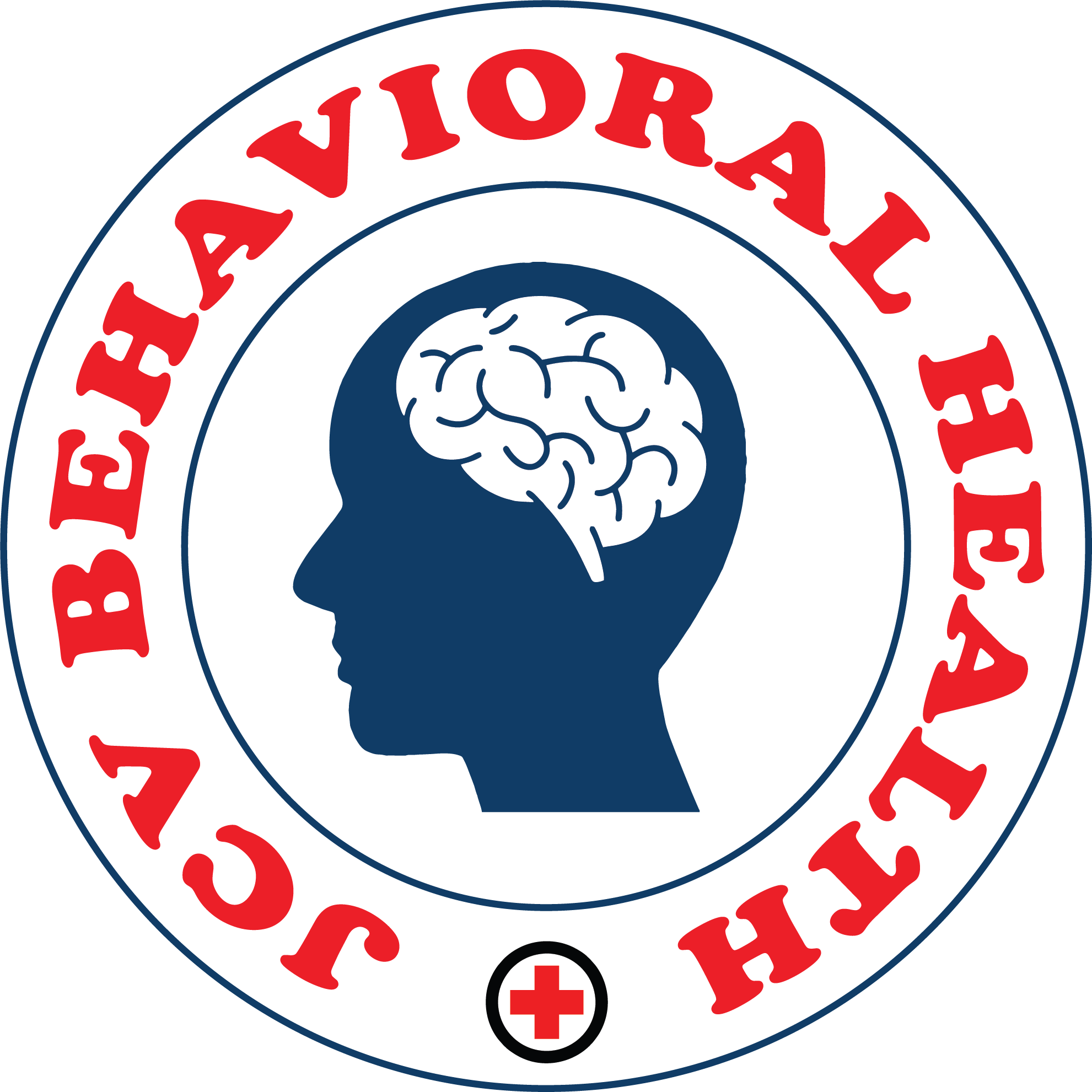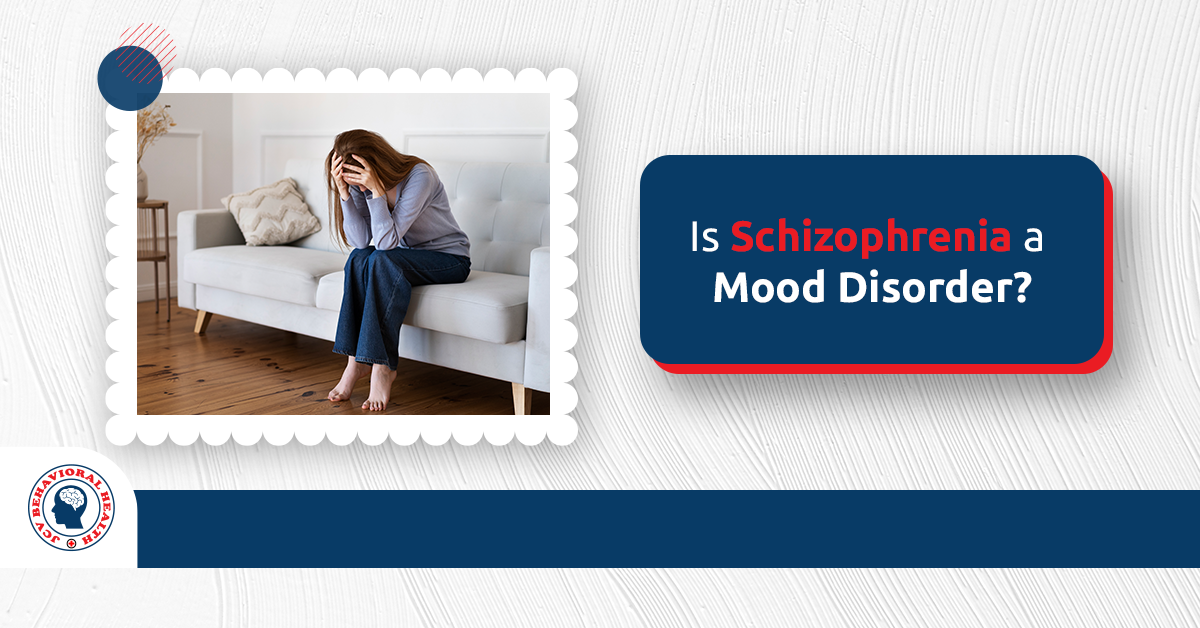Is schizophrenia a mood disorder? Schizophrenia is a severe mental illness. It affects how a person thinks, feels, and behaves. Having this condition means you may see things that don’t exist or accept untruths. Despite sharing features with mood disorders, schizophrenia stands apart. Mental health professionals view it as a separate division.
They emphasize its unique symptoms and effects. It’s a serious situation. It changes how people see and react. It’s different from standard mood shifts. It is key to know the difference between schizophrenia and schizoaffective disorder. Despite similar symptoms, they are distinct situations.
At JCV Behavioral Health Services, we diagnose and treat complex mental health issues. Our kind team helps people manage their mental health and live fulfilling lives. Contact us for expert care.
What Is a Mood Disorder?
Conditions like gloominess and extreme mood swings change people’s emotions. People might feel super excited or solidly sad. Schizophrenia, often mistaken for these swings, isn’t about moods. It’s a type of mental condition.
Understanding Schizophrenia and Schizoaffective Disorder
Schizoaffective disorder blends psychosis with mood issues like sadness or hyperactivity. On the other hand, schizophrenia impacts thinking and behavior, skipping mood changes entirely. Spotting these conditions is key to finding the right treatment. Schizoaffective disorder has a mood component, unlike schizophrenia. That’s its main difference. This uniqueness molds how each condition is managed.
Signs and Symptoms of Schizoaffective Disorder
To confirm schizoaffective disorder, we must evaluate a person’s symptoms. Here are common signs of the disorder:
- Hallucinations
- Delusions
- Periods of depression
- Manic episodes
- Disorganized thinking
Schizoaffective disorder hampers everyday tasks. However, those with the disorder often have better periods. They provide a break from the difficult times.
Can People with Schizoaffective Disorder Work?
Having schizoaffective disorder, a mental health problem can pose challenges to working. Yet, with suitable treatment and aid, many people can stay active. Is work achievable for people with schizoaffective disorder? Yes! Proper care allows numerous sufferers to keep their jobs. Some, if their condition harms work, might qualify for disability for schizoaffective disorder.
Work capability varies by individual. It depends on symptom intensity, aid received, and the nature of the job. Some may need adjustments to stay productive in their work.
Is Schizophrenia an Affective Disorder?
People often get it wrong: Is schizophrenia a type of affective disorder? It’s not. Affective disorders include things like feeling down or having mood swings. True, schizophrenia can affect emotions. Mostly, though, it is a psychotic disorder. It has a bigger effect on thought and understanding than on emotion.
Just like a mood disorder, schizoaffective disorder has certain features. It can exhibit signs such as high energy or feeling low. So, recognizing how it differs from schizophrenia is crucial.
Schizoaffective Disability and Support
Schizoaffective disability makes finding jobs and doing daily tasks hard for some. Their symptoms are severe. If these struggles affect their jobs or independence, they may receive disability benefits. They aim to help people live better lives while getting the needed care.
Remember, having schizoaffective disorder doesn’t always require disability benefits. Certain people can control their symptoms with drugs, counseling, and support. This lets them hold jobs and lead happy lives. Knowing that each person’s ordeal with the disorder varies is important.
Treatment for Schizophrenia and Schizoaffective Disorder
Addressing schizophrenia and similar conditions often needs a mix of drugs and counseling. The aim is to control signs, improve living standards, and help the person do more in daily tasks. Check out the usual treatment methods:
-
Medication
Antipsychotic medicines mostly aid those grappling with schizophrenia or schizoaffective disorders. The latter condition often finds solace in antidepressants or mood-balancing drugs. They may help alleviate their symptoms. These help control feelings of depression or mania. These extra meds help control the disorder’s mood symptoms. They work with the core antipsychotic regimen.
-
Therapy
CBT and other therapies empower people. They offer tools to understand, manage, and change thoughts and emotions. These methods help people control their inner worlds. They provide tools to handle pressures and connect better with others.
-
Support Groups
A help circle of people with similar struggles can offer comfort. They can share tips for dealing with schizoaffective disorder.
-
Lifestyle Changes
Regular workouts, rest, and healthy meals can improve health. A balanced life could reduce discomfort.
-
Family Support
Families play a pivotal role in supporting loved ones. Family therapy and education can foster understanding and provide help.
Treatment plans help those with schizophrenia or schizoaffective disorder. By combining therapies, patients can manage symptoms and succeed. A customized approach is key. It allows people to live fulfilling lives despite their diagnosis.
Living with Schizoaffective Disorder
Living with schizoaffective disorder can be tough, yet many people cope successfully. Care and community make work, create bonds, and indulge in passions possible. Knowing oneself and asking for assistance result in a steady, rewarding existence. With the right resources, they can find joy. They can then embrace life to the fullest. Supporting a person with schizoaffective disorder requires patience and care without judgment. Family and friends hold an important role by urging treatment and staying to listen. Your consistent help remains crucial, providing comfort and understanding in difficult moments.
Conclusion
So, is schizophrenia a mood disorder? No, schizophrenia is a psychotic condition that impacts thoughts and perceptions. It differs from mood disorders. Often, people confuse it with schizoaffective disorder. The latter combines psychosis with depression or mania. Schizophrenia, however, is distinct. It’s vital to recognize this difference for accurate diagnosis and treatment. Both conditions share some symptoms. Yet, their causes and treatments are different. Identifying correctly is pivotal for providing the appropriate care.
Timely action is crucial for schizophrenia and schizoaffective disorder. Mental health experts craft personalized plans to boost outcomes. Despite challenges, proper care can lead to fulfilling lives. With support, patients find stability and satisfaction.
People with schizophrenia or schizoaffective disorder need help from an expert. A mental health expert is important for them and their families. They provide needed aid and direction.
FAQs
Q. How is schizoaffective disorder treated?
Drugs, guidance, and community meetings offer relief by addressing symptoms. This improves daily life for those affected. With proper care, individuals can thrive despite challenges.
Q. What is schizoaffective disorder?
Schizoaffective disorder is a mix of psychotic and mood disorder symptoms. These include depression or mania.







